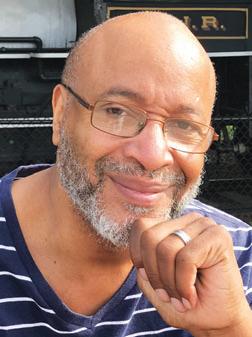

S TORY ON PAGE STORY 3 BRUCE A . HENRY A. HENRY At The Dakot a At The Dakota Facebook Vol. 50 No. 28• The Journal For Community News, Business & The Arts • insightnews.com Vol 50 No 28• The Journal For News, Business & The Ar ts • insightnews com July 10, 2023 - July 16, 2023 10 2023 - 16 2023 INSIGHT NEWS IS AUDITED BY THE ALLIANCE FOR AUDITED MEDIA TO PROVIDE OUR ADVERTISER PARTNERS WITH THE HIGHEST LEVEL OF MEDIA AS SURANCE. I N S I G H T N E W S I S A U D I T E D B Y T H E A L L I A N C E F O R A U D I T E D M E D I A T O P R O V I D E O U R A D V E R T I S E R P A R T N E R S W I T H T H E H I G H E S T L E V E L O F M E D I A A S S U R A N C E Insight News News

















Page 2 • July 10 2023 - July 16 2023 July 10, 2023 - 16, 2023• Insight News insightnews.com
Downtown Storefronts Workgroup recommendations
Mayor Jacob Frey last month presented recommendations from his Vibrant Downtown Storefronts Workgroup. He was joined by City Council Members Goodman and Rainville, Workgroup Co-Chairs Steve Cramer, President and CEO of the Minneapolis Downtown Council and Downtown Improvement District, and Gabrielle Grier, CIO of the African-American Leadership Forum, along with Workgroup members, City staff, and local business and community leaders.
The volunteer Workgroup examined opportunities to reinvent the storefront experience in downtown Minneapolis in light of local and national trends that could be applied at both the street and skyway levels.
“Right now, we have the opportunity to be on the cutting edge to change the trajectory of where our downtown is going,” said Mayor Frey. “Things are
changing dramatically, and these recommendations will help us change with them. Minneapolis will continue to lead and be a city that others look to as a model for success. I am so grateful to this group of experts who dedicated their time and energy to research and recommended new, creative ways we can re-imagine downtown space. This is just the beginning of our efforts, and I look forward to bringing our downtown to the next level.”
“As we confront the challenge of vacant storefronts, the opportunity is to build a unique, experiential downtown that reflects our strengths as a community. Our recommendations lay out a roadmap for achieving that vision,” said Co-Chair Steve Cramer, President and CEO of Minneapolis Downtown Council and Downtown Improvement District.
African American Leadership Forum executive Gabrielle Grier, said, “I will be
pushing to ensure inclusion for Black and folks of color, artists, designers, and business owners, developers, and entrepreneurs as the reinvigoration of our downtown takes place.”
The Workgroup’s primary purpose was to develop specific, implementable recommendations with the following core intentions:
Invest in and prioritize people first and foremost

Catalyze activation that sticks
Embrace an organic downtown, with strategic solutions


Create a welcoming and inclusive experience for all people that keeps them coming back downtown
Key takeaways from the Workgroup’s recommendations include:
City-Business Partnership: Create an independent facilitator/ concierge role through the

Minneapolis Downtown Council/ Downtown Improvement District (MDC/DID) who will use knowledge, space inventory, and relationships to match building owners with potential businesses, entrepreneurs, and artists. Pair this facilitator with a City staff person dedicated to strategically catalyzing downtown revitalization. Fund and institutionalize this partnership.
Ease of Doing Business: Evaluate current regulations related to land use, zoning, signage, and permitting, licensing, and fees, and seek new ways to be flexible and make doing business with the City even easier. Focus deliberately on the specific needs of downtown. Be open to new ideas and business models and provide more technical assistance. Continue developing strong partnerships between City sta
and
After anticipated affirmative action ruling, Black leaders speak out
By Lauren Victoria Burke, NNPA Newswire Contributo

After the U.S. Supreme Court did what many have long expected, strike-down racebased admissions to colleges, Black leaders held emergency press conferences and strategy calls. One convened by Marc Morial on June 29 hours after the Supreme Court’s decision yielded sharp commentary. Affirmative action refers to a set of policies and practices aimed at promoting equal opportunities for historically disadvantaged groups, particularly in relation to employment or education. The purpose of affirmative action is to address the historical and ongoing systemic discrimination and underrepresentation that has been faced throughout history. Women, racial and ethnic minorities, and individuals with disabilities have been beneficiaries. Typically, affirmative action involves taking proactive steps to increase the representation of these underrepresented groups in areas where they have been historically excluded or marginalized.
The 6-3 ruling by the U.S. Supreme Court will alter

college admissions policies. Chief Justice John G. Roberts Jr., writing the opinion for the majority, said the programs “unavoidably employ race in a negative manner” and “involve racial stereotyping,” in violation of the Constitution. The ruling affirmed that race-conscious admissions programs at Harvard and the University of North
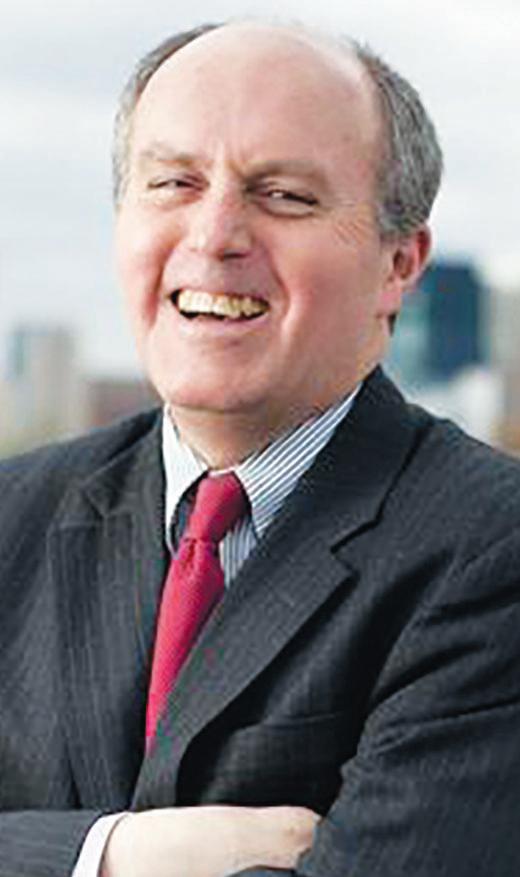

Carolina are unconstitutional.
Associate Justice Sonia Sotomayor spoke in person her dissent from the bench which signaled strong disagreement saying the court’s ruling “further entrenching racial inequality in education” will have a devastating impact.”
The decision would seem to be a slap in the face
Master vocalist and storyteller
Bruce A. Henry returns to Dakota Jazz Club in Downtown Minneapolis July22.
Known as a “man of great musical imagination,” Bruce A. Henry is an internationally known vocalist, composer, storyteller, recording artist and educator. A man of great musical knowledge, Henry teaches musical history, traditions and culture as he entertains and enraptures audiences with his vocal agility. Anchored in Chicago, Illinois, with strong ties to the Twin Cities, Minnesota, Henry shares his expertise and musical creativity across the nation and overseas.
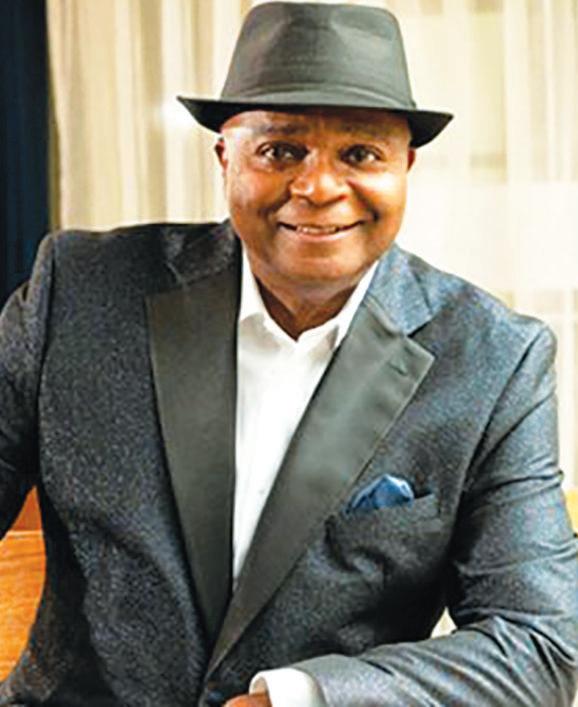
Bruce Henry is a singer and band leader with a long history of stellar jazz concerts, moving R&B shows and revered tribute performances. Honoring the likes of Stevie Wonder, Al Jarreau, Marvin Gaye, Ray Charles, Duke Ellington and George Gershwin, his tribute shows entertain audiences with inspired interpretations of classics. As a vocalist extraordinaire, he handles an eclectic mix of styles with ease. Both his voice and mind are treasures. A concert,
residency or workshop with Henry leave you lifted, enriched and energized from his performance and more knowledgeable, reflective and inspired from his innate ability to teach. Henry teaches with The Evolution of African American Music, a program he developed consisting of residencies, informative concerts and published curriculum. A baritone, whose three-and-a-half octave range allows him to sing tenor, alto and falsetto, Henry has a pure voice with a versatility few can match. His music has
of history as well as real world reality. Currently, a move is on to ban books in many school districts across America with many Republicans calling rudimentary discussion on race “divisive.” Statistics on college enrollment for African Americans demonstrate there is
In a definitive and consequential ruling, the Honorable Ebony Scott in the Superior Court of the District of Columbia, Civil Division, issued on May 10, 2023, a factual “Summary Judgment” in favor of the National Newspaper Publishers Association (NNPA).
Today, in an official notice sent out to each member publisher of the NNPA, Dr. Benjamin F. Chavis, Jr, President, and CEO of the NNPA, confirmed, “In the matters of Dorothy R. Leavell
v. NNPA, Amelia Ashley-Ward
v. NNPA, and Carol Geary
v. NNPA, the courts in the District of Columbia have now ruled in favor of the NNPA.”
The NNPA is the national trade association of the Black Press of America representing over 240 African American-owned newspapers and multimedia companies throughout the United States.
Chavis resoundingly attested, “Finally, after four years of extended and financially costly, frivolous lawsuits against the NNPA,
we have good news for the NNPA upon winning these significant legal victories.” Chavis concluded, “The NNPA will continue to work diligently to ensure that the voting rights of all our member publishers are protected from any future effort to subvert the overall interests of the membership of the NNPA.” Leavell, AshleyWard, and Geary who are members of the NNPA, disagreed with the outcome of the 2019 NNPA national elections and sued the NNPA, in part, to contest the results of the 2019 NNPA Board Elections.
In 2019, the membership of the NNPA duly elected Karen Carter Richards, publisher of the Houston Forward Times, as the new NNPA Chair. Leavell was defeated by Richards for Chair of the NNPA. “As much as I would like to say that I’m excited about this ruling I’m not [because] this

insightnews.com Insight News • July 10 2023 - July 16 2023 10, 2023 - 16, 2023• Page 3
iStockphoto
“We are pleased with the judge’s decision, and it’s been a long time coming,” NNPA General Counsel Attorney A. Scott Bolden stated.
ff
business and Photo:
/ NNPA
NNPA
Photo: iStockphoto /
WORKGROUP 4 City
HENRY 4 Bruce
Henry: A communal experience NNPA 5
of Minnepolis Mayor Jacob Frey
A.
Dakota Bruce A. Henry AFFIRMATIVE 4
NNPA wins in four-year voting rights civil cases The Business Journals Co-Chair
AALF AALF
Insight News Insight News Vol 50 No 28• The Journal For Community News, Business & The Arts • insightnews com Vol. 50 No. 28• The Journal For Business & The Arts • insightnews.com July 10 10, 2023 , 2023 - July 16, 2023 - 2023 I N S I G H T N E W S I S A U D I T E D B Y T H E A L L I A N C E F O R A U D I T E D M E D I A T O P R O V I D E O U R A D V E R T I S E R P A R T N E R S W I T H T H E H I G H E S T L E V E L O F M E D I A A S S U R A N C E INSIGHT NEWS IS AUDITED BY THE ALLIANCE FOR AUDITED MEDIA TO PROVIDE OUR ADVERTISER PARTNERS WITH THE HIGHEST LEVEL OF MEDIA AS SURANCE. Commentary OP-ED: Honoring our past and looking towards the future PAGE 5 PAGE 6 Education US music education has a history of anti-Blackness that is finally being confronted
Steve Cramer
Executive Gabrielle Grier
Mississippi is becoming a less attractive destination for retirees, reveals study
Study of studies determines which states have improved as retirement destinations.
Mississippi has dropped 29 places within 5 years.

Infographicshowing
how each state has performed over 5 years.
Seemingly vying to appeal to the highest number of retiring individuals, each passing year presents a fresh ranking of the most desirable states for retirees. Past years saw states such as Florida, South Carolina, and Arizona consistently topping the lists. Recently, however, the landscape has fluctuated, with states gaining or losing allure based on various criteria including quality of life, affordable housing, reasonable healthcare costs, safety, and low taxation.
Nonetheless, gauging the attractiveness of retirement states solely from an isolated annual ranking might not yield a precise portrait. It might fail to show whether these highranking states truly offer the best retirement environments, or if their positions have been temporarily inflated by shortterm factors like favorable new tax regulations.
To provide a more comprehensive, long-term perspective, Metal-res.com undertook a ‘study of studies’* of retirement rankings across a five-year span. This research involved calculating the rise or fall in rankings to identify the states showing the most significant improvements or declines as retirement destinations, as reflected in various studies› rankings.
#1 The findings revealed that Virginia has had the
Work group Workgroup
From 3
property owners.
Nicollet Mall:
Evaluate the future of Nicollet Mall as a pedestrian-only zone. Explore alternative options for transit service elsewhere
Henry
From 3
taken him to five continents.
He has recorded for Disney, HBO and numerous national ad campaigns. He has performed with and opened for the likes of
most remarkable improvement as a retirement state over this half-decade period, jumping 38 places. While Virginia might not immediately come to mind as a retirement destination, it has distinguished itself as the state with the most progress, thanks to its high-quality living standards, top-notch healthcare services, and affordable cost of living. Virginia jumped from 39th place in 2019 to occupy the top spot by 2023. When it comes to tax policy, Virginia is comparatively moderate, charging .66% less in state tax than the national average. However, the exemption of social security benefits from taxation adds significant appeal for retirees.
#2 Minnesota, the North Star state, was identified as the runner-up in terms of improvement for retirement suitability, climbing an impressive 32 spots from its 40th position in 2019 to 8th in the current year. The state consistently performs well in various areas, including healthcare facilities and entertainment, often clinching the top rank. Furthermore, Minnesota boasts the thirdlongest life expectancy among all U.S. states, trailing only behind Hawaii and California.
#3 Securing the third spot as the most improved location for retirees, Colorado demonstrated a significant upward shift of 30 ranks, moving up from its 33rd position in 2019 to 3rd place in 2023. Colorado’s appeal as a retirement destination is manifest in its captivating natural landscapes, diverse amenities, superior healthcare services, and a cost of living that is manageable, all contributing
through downtown and engage stakeholders to understand the full range of impacts. Brand Nicollet Mall as the “best winter street in the nation” and explore legislation to allow open containers on Nicollet Mall and in other specific areas downtown. As a first step, consider consolidation of the northernmost block (3rd
Doc Severinson, Roberta Flack, Chris Botti, Ramsey Lewis, Stephane Grapelli, Jimmy Jam and The Sounds of Blackness.
Henry’s eclectic vocal style conjures John Coltrane, Leon Thomas, Gil Scott Heron, Al Jarreau, Nina Simone and Marvin Gaye.
He has a deep understanding of the connection between history, music and culture, and
INSIGHT NEWS
www.insightnews.com
Insight News is published weekly, every Monday by McFarlane Media Interests.
Editor-In-Chief Al McFarlane
Publisher Batala-Ra McFarlane
Associate Editor & Associate Publisher B.P. Ford
Culture and Education Editor
Dr. Irma McClaurin, PhD.
Associate Editors Afrodescendientes
Jesús Chucho Garcia
Mestre Yoji Senna DaBahia
Columnist Brenda Lyle-Gray
Book Review Editor
W.D. Foster-Graham
Sports Editor Leahjean M. Denley
Content & Production
Manager Sunny Thongthi Yang
Distribution/Facilities
Manager Charles Royston
Receptionist
Lue B. Lampley
Intern Naomi Thomson
Photography
Uchechukwu Iroegbu Lou Michaels Roy Lewis - Washington D.C.
Artist Donald Walker
Contact Us: Insight News, Inc.
Marcus Garvey House 1815 Bryant Ave. N. Minneapolis. 55411 Ph.: (612) 588-1313
Fax: (612) 588-2031
Member: Minnesota
Multicultural Media Consortium (MMMC) Minnesota Newspaper Association (MNA)

National Newspaper Publishers Association (NNPA)


Postmaster: Send address changes to McFarlane Media Interests, Marcus Garvey House 1815 Bryant Avenue
North, Minneapolis,
to its status as a preferred place to enjoy retirement.
#4 Perhaps surprisingly, Alaska is the 4th most improved state for retirement. Contrary to popular belief, Alaska ranks well in terms of financial security for seniors, with better-funded senior services and work opportunities. Despite its reputation for remoteness, cities such as Anchorage offer ample access to medical facilities and a variety of transportation options, including buses, motorcoaches, trains, air taxis, water taxis, and ferries.
Street to Washington), joining RBC Gateway Plaza and Cancer Survivors Park as a demonstration project.
IncentivizeActivation: Implement assessment practices that incentivize active, reduced- or non-revenue uses of commercial retail space as an alternative to vacancies. Recognize that providing lower
how generations of expression build upon one another.
Bruce Henry and the band bring the “audience” together on a musical train ride. Steeped in African American and thus African culture, Henry believes that there is no such thing as an audience. Performances are communal experiences. Whether through call and response, singing,
Affirmative Af rmative
From 3
more work to be done to increase enrollment at a time when college costs have skyrocketed.
“I find it interesting to say we’re beyond race in this country when we know that 48 percent of white students admitted to Harvard between 2009 and 2014 either were legacy admissions or
#5 Rounding up the top 5 came the state of Delaware. The First State ranked in a lowly 33rd position in 2019 before making steady progress to end in 5th position overall in 2023. Choosing to retire in Delaware is a wise financial decision as it boasts one of the lowest property tax rates in the nation. Furthermore, it provides considerable tax benefits for seniors, including exclusions on pension and 401(k) income, plus various tax credits tailored for homeowners who are 65 or older. Alongside these fiscal advantages, Delaware delivers
cost and more flexible leases to emerging businesses and artists reduces rents and property values, while recent (pre-2020) rents and valuations no longer reflect reality and incentivize building owners to keep spaces vacant as opposed to filling them at reduced rents.
Focus Resources: Allocate energy and resources

dancing or joining in with a shaker or bell, the communal experience of song is joyful and energizing in each concert.
Over his career, Bruce has performed on legendary international stages as the Malate in Manila, the Klezmer Festival in Israel, Le Bilboquet in Paris, the WhitBread in London, the Coconut Grove in Miami, the
they were athletes,” said Maya Wiley, President of the Leadership Conference on Civil and Human Rights.
“This is the first time that we are facing a court that misinterpreted the equal protection clause and our seminal case Brown vs. Board of Education after a predecessor court made very clear what the principals were in the Constitution and in the Brown case,” said Janai Nelson, President of the NAACP Legal Defense Fund during a
an appealing lifestyle with its coastal living and quaint smalltown charm.
#48 Over the past five years, Mississippi has witnessed a decline in its rankings as a desirable retirement destination, dropping 29 places to 48th position overall. One significant factor is the state’s healthcare system. Mississippi has faced challenges in terms of healthcare access, quality, and outcomes. Limited availability of healthcare facilities, healthcare providers, and specialized services can impact retirees’ ability to receive necessary medical care, especially for those with specific healthcare needs. Another factor contributing to Mississippi’s drop is its relatively lower economic conditions. The state has one of the lowest median income levels compared to other states, which can affect retirees’ financial stability and overall quality of life. Additionally, the cost of living in Mississippi, including housing expenses, has seen an increase, which can strain retirees’ budgets, particularly those on fixed incomes. Finally, the least improved state for retirees is Kentucky, dropping a whopping 44 places over 5 years. From being the 6th best state for retirees in 2019, it plummeted to the 50th spot this year. The Bluegrass state was particularly disadvantaged in three categories: sleep quality among seniors, availability of dentists, and the well-being index for those aged 55 and above. Health aspects significantly influenced Kentucky’s low ranking. A relatively modest 66.9% of seniors reported their health as good or better, while
towards implementing interventions at focused intersections to maximize success and build momentum
The Warehouse District, with its history as an entertainment node, adjacency to the lively North Loop, and historic buildings more readily converted to residential uses, should be a starting point for additional
Waldorf Astoria in New York and Grand Wailea in Maui.
In Minnesota, he has thrilled audiences at Orchestra Hall, Hopkins Center for the Arts, Dunsmore Room at Crooner’s Supper Club, Dakota and St. Joan’s Concert Series, to name a few.
Sample Chicago appearances and venues include DuSable Museum,
mid-day press event held by the National Urban League.
The NAACP Legal Defense Fund has been involved in every case involving affirmative action that has gone to the U.S. Supreme Court.
“Unfortunately, this Supreme Court is trying to have a reality that is more reflective of 1950,” said NAACP President Derrick Johnson.
“Today’s case, let’s be very clear, does not end Affirmative Action but it makes it much more difficult.
a concerning 10.3% of seniors experienced poor mental health. Infographic showing the full ranking across America “
Over the last five years, we’ve witnessed a substantial shift in the retirement landscape across the United States,” said Barry Landry of Metal-res.com «It’s not merely about where retirees are heading now; it’s about recognizing consistent improvement in factors that matter to retirees. This data gives us a deeper understanding of retirement trends and showcases how states are striving to better accommodate our aging population.” All content is free to use. Please credit Metal-res. com with a link if you use these insights. This helps us continue to provide you with valuable content in the future.
*https://www. huffpost.com/entry/retirementbest-worst-states-bankrate_l_ 5d24e5e6e4b0583e4828656b https://moneywise. com/managing-money/ retirement-planning/bestand-worst-states-to-retire https://moneywise.com/ news/top-stories/the-worststates-for-retirement-in-2021 https://www.bankrate. com/retirement/bestand-worst-states-forretirement/#full-results https://wallethub.com/edu/bestand-worst-states-to-retire/18592
For more information, please contact us on the details below:

cherry digital content| personal finance | info@ cherrydigitalcontent.com 3415 NE 25th Avenue, Portland, Oregon, 97212
study and intervention.
Budget: Beginning in the second half of 2023, invest $75,000, in partnership with MDC/DID, for a total of $150,000, to begin this work. In 2024, invest an allocation of $750,000 to support the ongoing revitalization of downtown Minneapolis and budget this as an annual expense.
Friday Night Jazz at the Quarry, Winter’s Jazz Club and Jazz in July: A Benefit Concert for Unity on The North Shore. Bruce Henry has also been a featured performer at the Chicago Jazz Festival, Twin Cities Jazz Festival, Hyde Park Jazz Festival, Freedom Jazz Festival, Jazz@StBarney’s and the KBEM Winter Jazz Fest.
It narrows the ability of higher education institutions to use their own power to decide who should be in a classroom… we are not abandoning the fight,” Nelson concluded.
“Friends today the Supreme Court got it wrong. I think this day will live in infamy. Because it was one of the most tortured opinions any of us have ever seen because it’s twisted in terms of its logic on the law,” Damon Hewitt, President of the Lawyers Committee for Civil Rights Under Law.
“Nothing in the opinion stops universities from asking about their race,” Hewit pointed out. “Our advice to students is to continue to talk about your experiences with race and racism,” he concluded.
“This Supreme Court ruling will close the door to educational opportunity for many Black students and students of color who want to attend non-HBCUs. With this new ruling, UNCF knows that more students will turn to HBCUs for their college educations. We also know that our HBCUs will do everything they can to meet increased student demand,” stated a press release from the United Negro College Fund.
Lauren Victoria Burke is an independent journalist and the host of the podcast BURKEFILE and publisher of Black Virginia News. She is a political analyst who appears regularly on #RolandMartinUnfiltered. She may be contacted at LBurke007@gmail.com and on twitter at @LVBurke
Page 4 • July 10 2023 - July 16 2023 July 10, 2023 - 16, 2023• Insight News insightnews.com
In 2019, my daughter Jennifer and I took part in a Congressional Delegation to Ghana that included my good friend, the late Congressman John Lewis. Our visit was to commemorate the 400 years since Blacks were forcibly taken from the continent of Africa and enslaved in America. During that visit, Jennifer and I stood silently in the “door of no return,” holding hands. I never asked her about her thoughts, and she did not ask me about mine. Last Saturday, she and her husband joined me at the dedication of the International African American Museum (IAAM) in Charleston. It is fitting that IAAM stands on the site of Gadsden’s Wharf, where nearly half of all enslaved Africans brought to this continent arrived.
When I was asked by then-Charleston Mayor Joe Riley 23 years ago to chair the steering committee to develop his vision of establishing such a museum in Charleston, I thought of the countless slaves that were stolen from their homeland, stripped of their identities, and brought to this strange land in shackles. But I also thought of the African Americans who rose above the circumstances of their ancestors and their countless descendants eager to honor their
NNPA
From 3
should have never happened to our esteemed organization or the wonderful publishers who make up this important entity,” Richards stated.
“This entire ordeal has been a stain on this organization, led by three individuals who refused to accept the will of the qualified vote of our publishers.”
our
memories. I said during my dedication remarks that IAAM tells the story of perseverance through the middle passage, resistance to enslavement, triumphs over Jim Crow, and significant contributions to the greatness of this country.
In the early days of our efforts, there was significant debate about the focus of the museum. But I knew we had to do justice to all 400 years of the Black experience in America.
On the day we broke ground on IAAM, another good friend, Congressman Elijah Cummings, was being funeralized in Baltimore, Maryland. Elijah was the great-great-grandson of Scippio Rhame, who, until he was freed in 1868, worked the same land as Elijah’s parents, who were sharecroppers.
Because of his parents’ participation in the great migration, Elijah was born and grew up in Baltimore, Maryland, where Elijah was placed in special education classes. He overcame that profiling and graduated college, Phi Beta Kappa. He became an accomplished lawyer, rose to serve in the United States Congress, and became Chairman of the powerful Oversight Committee. IAAM tells the story of the ancestors and descendants of Scippo Rhame, and countless others with similar backgrounds and experiences. Those stories are
Richards continued:
“Not only did we have to fight through the COVID-19 pandemic and other changes in the market, but we also had to fight against the frivolous actions of three of our member publishers.

“Now, thankfully after four years, we can put this unjustified action behind us and move forward for the betterment of our organization and continue to do what’s right for the NNPA.”
During the past four years, however, the NNPA

about more than the institution of slavery—they are uplifting experiences that epitomize the varying possibilities of who we are and what we can—and have—become. In that spirit, IAAM has established a oneof-a-kind center dedicated to African American genealogy research. The Center for Family History hosts a growing collection of photos, historical documents, and family histories that the public can comb through to find more information about their family trees.
To help bolster their records, the IAAM Center for Family History has issued an open call for obituaries, photos, family histories, and other historical documents. It is not lost on me that at the site where some researchers say half of all African Americans arrived in this country will sit a museum committed to reunifying their descendants with lost histories.
There is significant currency in the museum’s acronym, “IAAM.” In my office is a statue of a sanitation worker holding a sign with a simple message: “I am a man.” This statue tells the story of the 1968 Memphis Sanitation Workers’ strike, born out of anger over the deaths of Black sanitation workers Echol Cole and Robert Walker, who were killed on the job by malfunctioning equipment. The primarily Black sanitation
continued to make substantial progress even in the face of the continued civil litigation.
“We are pleased with the judge’s decision, and it’s been a long time coming,” NNPA General Counsel Attorney A. Scott Bolden stated.
“There was never any substance to the plaintiffs’ allegations. Unfortunately, it took four years and a lot of legal expenses to prove that there was nothing there.”
Bolden said Judge Scott also issued a separate
Do not forget to wash your hands! WET YOUR HANDS APPLY SOAP WASH YOUR HANDS FOR 20 SECONDS Need a timer? Sing the ABC song! RINSE WELL DRY YOUR HANDS Minnesota Department of Health | health.mn.gov | 651-201-5000 | Contact health.communications@state.mn.us to request an alternate format. | 8/2 /2020

force demanded recognition of their union, improved safety standards, and a living wage. It took nearly 2 months and the death of Dr. Martin Luther King, Jr., but in the end, their demands were met. The museum’s acronym, “IAAM,” serves to recognize their struggle and ultimate success.

I often quote George Santayana’s admonition, “Those who do not remember
order of sanctions – the second during the case – “for some of the conduct of the plaintiffs and their counsel.”


“This isn’t the first time the plaintiffs and their lawyers were sanctioned,” Bolden asserted. “It is fortunate that we were able to emerge victorious.” Bolden said many lessons were learned about how the lawsuit was brought and how the plaintiffs and prior judges handled it.
“Going forward, we’re
looking forward to working with NNPA members and the board members to prevent any future lawsuits against the organization by amending the NNPA Bylaws to ensure that any disputes will require mediation or arbitration,” Bolden said. He said the two avenues are far less expensive than civil litigation.
Bolden also noted that Carole Geary, publisher of the Milwaukee Courier, lost her lawsuit against the NNPA in 2022, appealed
chairmanship, especially in those early days, when I was not sure we would get this project across the finish line. I am proud that after more than 20 years of hard work and dedicated commitment, we are celebrating its opening, and future generations can learn fuller and more accurate stories of America’s greatness.
the defeat, and lost again.
“Thanks to our outstanding legal team, our leadership, and Dr. Benjamin Chavis, our president/CEO for pressing forward as we endured such an unfortunate and costly situation,” Richards added. The NNPA is now preparing to celebrate the 196th Year Anniversary of the Black Press of America at its 2023 Annual National Convention in Nashville, TN, June 28-July 1, 2023.
insightnews.com Insight News • July 10 2023 - July 16 2023 10, 2023 - 16, 2023• Page 5
OP-ED: Honoring
past
past lessons are condemned to repeat them.” African American history encompasses far more than the horrors of those who were enslaved. Their countless descendants include history-making visionaries, and IAAM honors and preserves their struggles and accomplishments and dares us to look toward the future. I must admit that there were times during my the future
and looking towards
Photo: International African American Museum (IAAM)
At the site where some researchers say half of all African Americans arrived in this country will sit a museum committed to reunifying their descendants with lost histories.
By Assistant Democratic Leader James E. Clyburn (SC-06)
US music education has a history of anti-Blackness that is finally being confronted
By Philip Ewell Professor of music theory, Hunter College



When it comes to achieving racial diversity, music education at the university level in the U.S. still has a long way to go.
One of the leading professional organizations, the Society for Music Theory, put it bluntly in 2020: “We humbly acknowledge that we have much work to do to dismantle the whiteness and systemic racism that deeply shape our discipline,” the group wrote. The focus on white, male Europeans in textbooks and music selected for study has been called into question by countless scholars and practitioners because of music education’s deep roots in anti-Blackness.


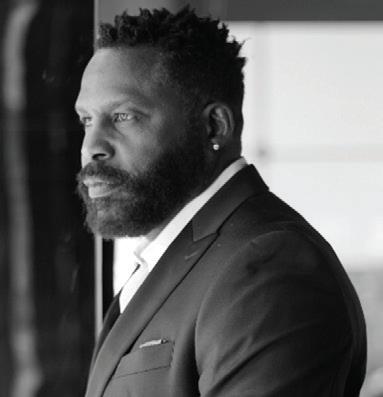
In recent years, the simplest solution for music professors has been to find nonwhite classical composers and use their work on a program or concert to demonstrate the school’s commitment to diversity. One person whose work some professors have used in such a way is Florence Price. A composer and music teacher who died in 1953, Price is considered to be one of the first Black female musicians with mainstream appeal.
But in my view as one of only a few Black scholars in the field of music theory, such diversity efforts often serve only to reinforce the whiteness and maleness of the system.
Ethnomusicologist
Dylan Robinson calls these efforts “additive inclusion” in that they give the impression of making positive change but serve only to maintain an overemphasis on the work of white male Europeans.
Music theory textbooks
In 2020, music theorist Megan Lyons and I did an analysis of the seven most common undergraduate music theory textbooks in the U.S. We wanted to establish a baseline of the racial and gender makeup of the composers represented in the books to see what teachers were offering to our students as the most important music to consider in the undergraduate music major.
Music theory courses, usually spread over four or five semesters, are often considered the most crucial aspect of the major, and theory textbooks are presented as authoritative sources that outline the essentials of the discipline.
Representative titles include “Harmony and Voice Leading,” “Harmony in Context,” “Harmonic Practice in Tonal Music” and “Concise Introduction to Tonal Harmony.” Looming large in these textbooks is the word “harmony,” the sound that is heard when two or more instruments or voices sound together, though in a global context the term has other meanings as well. What is considered harmony in the U.S. is based on European notions of tonality, pitch, scale, mode, key and melody.
The three composers the books most commonly represented were Germans Johann Sebastian Bach and Ludwig van Beethoven and Austrian Wolfgang Amadeus Mozart. We found that of the nearly 3,000 musical examples cited in the textbooks, only 49 were written by composers who were not white and only 68 were written by composers who were not men.
On rare occasions those two subgroups
overlapped, as with Florence Price. Only two examples were written by Asian composers. All told, almost 98% of the musical examples were written by white men who mostly spoke German, and these seven textbooks represented about 96% of the market share.
Left out of textbooks are the many African American musicians who contributed significantly to American music, such as classical composers Nathaniel Dett, James Reese Europe, Julia Perry and Clarence Cameron White. Also generally excluded were nonclassical genres like jazz, blues or bluegrass, or contemporary popular music such as hip-hop, soul or punk.
Anti-Blackness in music
conservatories
American music academies generally reflect the social norms of the day. Anti-Blackness was commonly accepted in all music institutions until well into the 20th century through the eugenics of music
pedagogue Carl Seashore, the white supremacy of the composer-pianist John Powell and the racism of music theorist Heinrich Schenker. In her 2019 master’s thesis “A Message of Inclusion, A History of Exclusion: Racial Injustice at the Peabody Institute,” violinist Sarah Thomas details a common American story of racial angst in higher education. Thomas focused on the Peabody Institute, founded in 1857 in Baltimore, Maryland and the oldest U.S. music institution, and its board members’ letters about the possible admission of Black pianist Paul Brent.
In July 1949, Peabody President William Marbury wrote the school’s board of directors and reminded board members of the school’s unofficial policy at the time: “We are brought face to face with the issue whether to modify our long-standing rule against the admission of negro students,” Marbury wrote. Once the issue was
put to a vote, only one board member, Douglas Gordon, openly opposed admitting Brent and cast the one dissenting vote.
“It seems to me that it would be a great mistake to change the present policy,” Gordon wrote. “In our climate the presence of negroes can to some be extremely offensive.”
Though Brent was admitted and became the first Black student to enroll at Peabody, the abhorrent views of Gordon still remain present today in more subtle forms.
The study of jazz is one such example of racial exclusion.

Generally considered a Black musical genre, jazz is now part of most music educational institutions, but is virtually always separate from the mainstream music major.
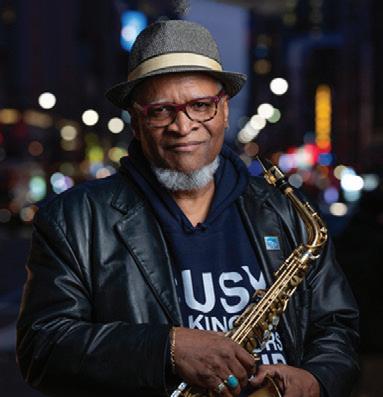

In a few cases, students are able to major in jazz. But in most cases, if students wants to major in jazz, they must major in classical music while playing jazz on the side.
Change in music education is coming

Citing declining enrollments for music majors across the country, the College Music Society in 2014 published a manifesto for change to the undergraduate music major. It deemphasized music and methods of the Western canon while emphasizing the need for students to engage with music from different cultures and with new technologies. This change has taken many forms.
Musicians are rethinking their curricula to treat all music of the world on equal footing as the European standards. Piano proficiency and European language requirements are being reconsidered – in some cases cast aside – by music institutions. Other schools are creating new music majors for those working with digital sound and sound design, or for those studying popular genres such as blues, rock, metal and country. Academic work in music is changing as well, and students can now at times get credit for work outside of traditional paper writing.
It’s my belief that the sooner we musicians, irrespective of our own identities, can face up to our racial segregationist past, the sooner we can all reap the benefits of our nation’s unique musical diversity.
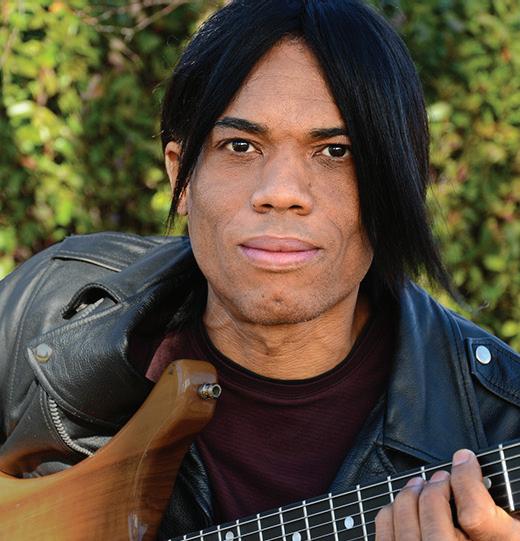


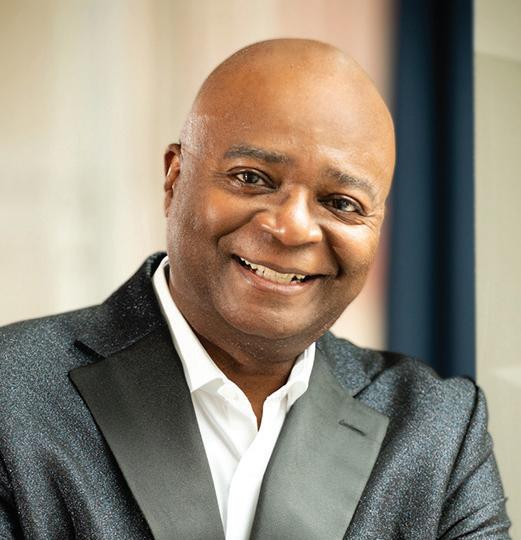
Philip Ewell does not work for, consult, own shares in or receive funding from any company or organization that would benefit from this article, and has disclosed no relevant affiliations beyond their academic appointment. This article is republished from The Conversation under a Creative Commons license.



























































 By: W.D. Foster-Graham Book Review Editor
By: W.D. Foster-Graham Book Review Editor
